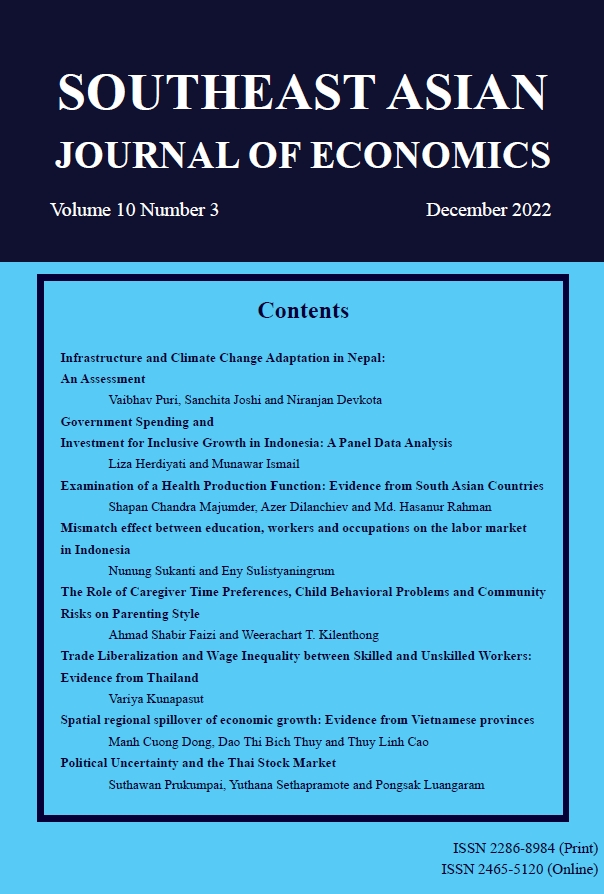Government Spending and Investment for Inclusive Growth in Indonesia: A Panel Data Analysis
Keywords:
domestic investment, foreign direct investment, government spending, inclusive growthAbstract
Economic growth, measured by GDP per capita, shows whether an area’s economy improves over time. However, GDP has limitations in reflecting the distribution of income and social-economic progress. Inclusive growth offers a better measurement of a nation’s development as it monitors the pace of growth and maintains that such growth will minimize poverty and inequality. This paper examines the effect of government spending and investment on inclusive growth in Indonesia using a panel data model in regencies/municipalities in Indonesia from 2015 to 2019. Applying fixed eff etc regression with Driscoll-Kraay standard errors, the empirical result shows that government spending on health and education and Domestic Investment positively aff ect inclusive growth. However, government spending on the economy and social protection and FDI do not impact inclusive growth. This study informs policymakers to evaluate and prioritize government spending and investment that support inclusive growth in Indonesia.
Downloads
Published
How to Cite
Issue
Section
License

This work is licensed under a Creative Commons Attribution-NonCommercial-NoDerivatives 4.0 International License.
The submission of a manuscript implies that the paper is an original work and has not been published elsewhere. The author(s) authorize the journal to reproduce or distribute the paper in printed or other electronic forms.







